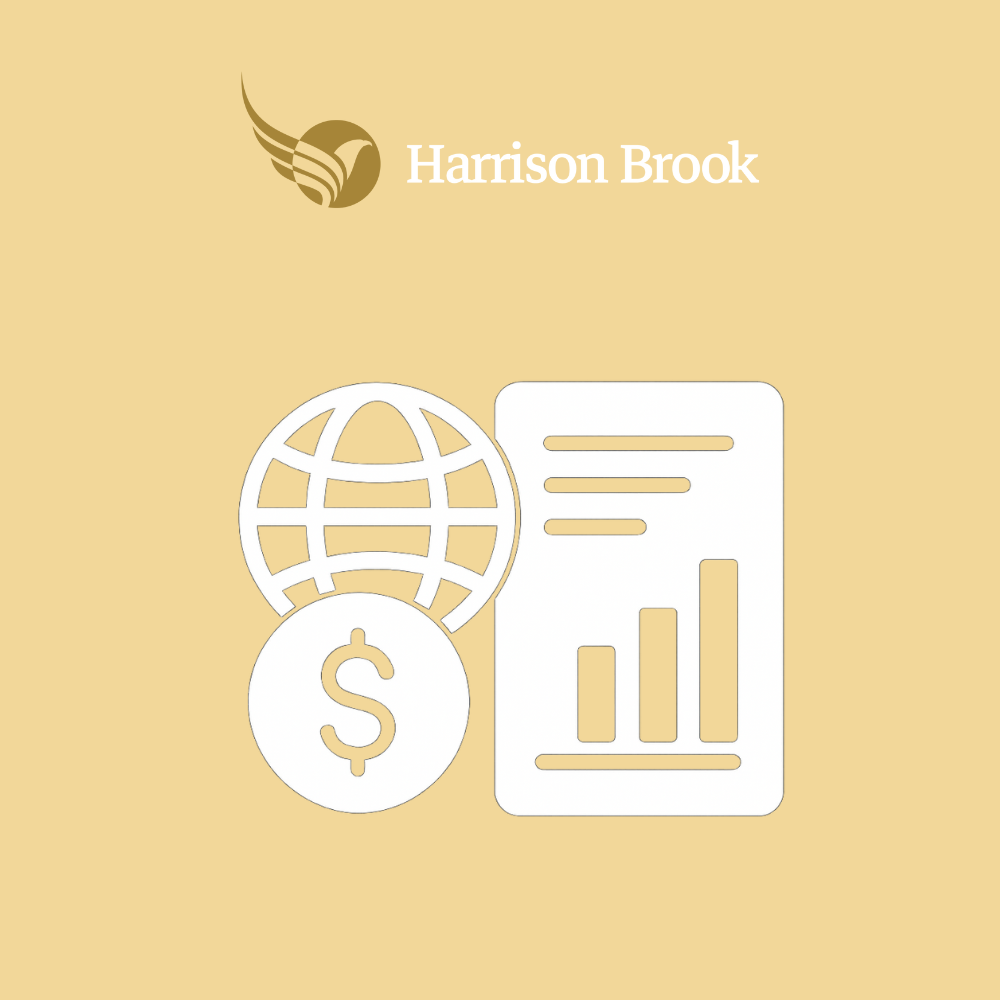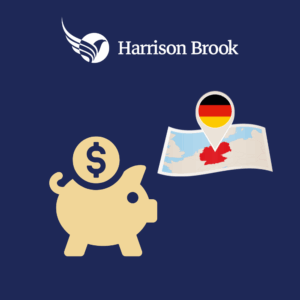
Moving to France offers an incredible mix of culture, lifestyle, food and healthcare quality that feels almost unmatched. Yet for many Americans, the financial side of becoming an expat can feel overwhelming. From understanding how much money you need in the bank to navigating US tax rules abroad, careful planning is essential. This 2026 guide brings together the most searched questions American expats ask and the practical steps to take before and after relocating.
Whether you are planning retirement in France, moving for work or simply seeking a long term lifestyle change, this guide will help you make informed and financially secure decisions.
Introduction to Financial Planning
Financial planning is a cornerstone for any US expat moving to France. Navigating the French tax system can be complex, especially when it comes to understanding your tax obligations as both a US and French tax resident. As a US expat, you are required to report worldwide income and pay taxes to the IRS, even while living abroad. At the same time, you may become liable for French tax on your income, assets, and investments, depending on your tax residency status.
To avoid double taxation, it’s essential to familiarize yourself with key provisions such as the foreign tax credit and the foreign earned income exclusion. The foreign tax credit allows you to claim a dollar for dollar credit on your US tax return for income taxes paid to the French tax authorities, helping to reduce your overall tax bill. The foreign earned income exclusion can also help lower your US tax liability if you meet certain residency requirements.
Wealth tax is another consideration for those with significant assets, as France imposes a wealth tax on real estate holdings above a certain threshold. Determining your tax residency is crucial, as it affects which taxes you must pay and which tax credits you can claim. Consulting a qualified tax professional with experience in both US and French tax systems is highly recommended. They can help you plan ahead, minimize tax liabilities, and ensure you remain compliant with both countries’ tax authorities as you embark on your French adventure.
How Much Money Do You Need to Retire to France from the USA
Retiring in France is achievable for many Americans, but preparation is key. The amount you need depends on the region you choose, your lifestyle and your long term goals.
It’s important to understand that pension income and investment income are taxed differently in France and the US. For retirees, knowing the tax treatment of both types of income can help optimize your financial planning and avoid unexpected tax liabilities.
Cost of Living Considerations
France is not universally expensive. While Paris requires a higher budget, regions like Occitanie, Brittany, the Dordogne and parts of the French Alps remain more affordable. Housing, healthcare and groceries are often cheaper than major US cities. Private healthcare and insurance typically come with higher costs in the US, whereas France offers relatively affordable public healthcare and supplementary insurance options. Many retirees report that daily life feels more manageable financially once settled.
Healthcare Access for Retirees
Healthcare remains one of the strongest benefits of retiring in France, but the landscape is shifting. While Americans can still apply for PUMA, France’s universal healthcare system, after three months of legal residency, the French government is now discussing the introduction of a minimum healthcare contribution for non EU retirees who have not paid into the system. This aims to create fairness between lifelong contributors and newcomers accessing subsidized care. Even under current rules, healthcare is not entirely free, as retirees must pay contribution fees and out of pocket costs, and many Americans keep private insurance until fully registered. France continues to offer exceptional healthcare for retirees, but planning ahead for both processing timelines and potential contribution changes is increasingly important.
Retirement Income and Taxation
How retirees are taxed in France depends on the type of income. France taxes pensions differently from the USA, and while the US France tax treaty prevents double taxation, filing remains complex. US Social Security is still taxable in the US, but many pension types are taxable in France.
Retirees must file tax returns in both the US and France to remain compliant with IRS and French tax authorities. When planning, be careful not to claim exclusions and credits on the same income, as this is not allowed. This is especially important when considering options like the Foreign Earned Income Exclusion or foreign tax credits.
Can a US Citizen Live Permanently in France
Yes. Americans can retire in France with a long stay visa or visitor visa and renew it annually. Permanent residency becomes possible after five years of continuous residence. The bona fide residence test may apply to US expats who can demonstrate they have been officially residing in France for over a year, using documents like residency cards, rental agreements, or utility bills, which can help qualify for certain tax benefits. Becoming a tax resident in France means you must report your worldwide income and comply with French tax laws.
What I Wish I Knew Before Moving to France
Every expat has a learning curve. These points come straight from the experiences of Americans already living in France.
Understanding French Administrative Culture
French bureaucracy is real. Many administrative processes are overseen by the French government, which can contribute to the complexity and length of paperwork and verification. Appointments, paperwork and verification processes can take longer than expected. Having certified copies of everything helps.
What to Watch Out For
Many new arrivals ask how not to stand out as an American in France. The key is cultural awareness. Speaking some French, dressing modestly, greeting with a polite “Bonjour” and avoiding loud conversations in public help expats integrate smoothly.
Livable Salary and Budgeting
What is a livable salary in France depends on location. Paris is significantly more expensive than smaller cities. Many expats are surprised by the lower cost of transportation, healthcare and childcare compared to the USA, but higher taxes and social charges can affect disposable income.
Is France Friendly to American Tourists and Expats
Yes. France welcomes millions of Americans each year. Long term residents often find that once they show effort in learning French, integration becomes much easier.
Can I Collect My Social Security if I Live in France
This is one of the top questions Americans ask. The answer is yes. You can collect US Social Security while living in France. Payments are sent directly to your French or US bank account.
How Long Can You Live Outside the US Before Losing Social Security
There is no limit for most retirees. Your eligibility does not stop because you live abroad.
Will France Tax My US Social Security
The US France tax treaty means your Social Security is only taxable in the US. However, you must still report it when filing your French tax return.
Pensions and Double Taxation
Many Americans worry about double tax. The treaty prevents this, but proper reporting is essential. By correctly applying foreign tax credits and treaty benefits, expats can minimize or even eliminate their US liability on pension income. Working with advisers who specialize in cross border US France finances will help avoid costly mistakes.
How Much Money Do You Need in the Bank to Move to France
When applying for a long stay visitor visa, proof of financial stability is required. While there is no fixed public number, most consulates expect your income or savings to match the French minimum wage as a baseline.
General Expectation
Most applicants demonstrate at least 1500 to 2000 USD per month in stable income or sufficient savings to avoid relying on French state support.
Do I Need to Carry My US Passport in France
Yes. All non EU citizens are required to carry proof of identity. Most expats use a photocopy daily and keep their passport securely at home.
Best Banks for Expats
Some French banks make opening an account easier for Americans, while others require additional FATCA documentation. Many US expats use international banks first, then open a local French account once they arrive.
US expats should be aware that they must report foreign accounts, including French bank accounts, to US tax authorities if certain thresholds are met.
Rental Income and Property Taxes
Owning property in France can be a rewarding investment, but it comes with specific tax implications for US expats. Rental income generated from French real estate is subject to French income tax, and you are required to report this income on your French tax return. In addition to income tax, property owners must also pay local property taxes, which can vary depending on the location and type of property.
For those with substantial real estate assets, the French wealth tax, known as Impôt sur la Fortune Immobilière (IFI), applies if the net value of your French and worldwide real estate exceeds €1.3 million. This wealth tax is assessed annually and must be reported to the French tax authorities.
US expats must also consider their US tax obligations. Rental income from French property must be reported on your US tax return, but you may be eligible for tax credits, such as the foreign tax credit, to offset taxes paid in France and avoid double taxation. Understanding these tax credits and how they interact with both the US and French tax systems is essential to prevent costly mistakes. Working with a qualified tax professional can help you navigate the complexities of rental income, property taxes, and the French wealth tax, ensuring you remain compliant and optimize your tax situation.
Financial Planning Steps for US Expats in 2026
1. Plan Your Tax Strategy Early
Understand the 5 year rule for US Social Security, the French 7.5 percent pension rule and how US pensions are taxed in France.
2. Review Your Investment Accounts
Americans in France face restrictions on PFIC investments. Many US brokerages will limit services once you relocate. Establishing a compliant investment structure before moving is essential.
3. Organize Retirement Income Sources
UK pensions, 401(k), IRAs and inherited accounts require specific planning to avoid excess taxation.
4. Consider Currency Exposure
Living in euros while your income remains in dollars affects long term financial planning.
5. Work With a Cross Border Adviser
US expats benefit most from advisers experienced in both US and French rules, investment compliance and retirement planning. It is essential to seek advice from cross-border financial and tax professionals to optimize your planning and ensure compliance with both jurisdictions.
Estate Planning for US Expats in France
Estate planning is a vital part of financial planning for US expats living in France. The French tax system imposes inheritance taxes that can be significantly higher than those in the US, with rates ranging from 5% to 60% depending on the relationship between the deceased and the beneficiary. These taxes apply to assets located in France and, in some cases, worldwide assets if you are considered a French tax resident.
In addition to French inheritance tax, US expats must also consider their potential US estate tax liabilities. The interaction between the two systems can be complex, and failing to plan ahead may result in higher taxes and complications for your heirs. Consulting a qualified tax professional who understands both US and French tax laws is essential. They can help you structure your estate to minimize tax liabilities, ensure compliance with both countries’ regulations, and provide peace of mind that your assets will be transferred smoothly to your beneficiaries.
Financial Planning Tools for Expats
Managing your finances as a US expat in France is easier with the right financial planning tools. Tax software such as TurboTax can help you prepare and file both US and French tax returns, ensuring you meet your tax obligations in both countries. Online banking and investment platforms allow you to manage accounts in multiple currencies, making it simpler to handle income, investments, and living expenses across borders.
For long-term savings, consider tax-advantaged retirement accounts that comply with both US and French regulations. Private health insurance is another important tool, as the French healthcare system, while comprehensive, may not cover all medical services or provide the level of coverage you desire. Comparing private health insurance options can help you manage healthcare costs and ensure access to the best care.
By leveraging these financial planning tools, US expats can streamline their finances, stay compliant with tax authorities, and make informed decisions about their investments and healthcare while living in France.
FAQs – Financial Planning for US Expats Living in France: 2026 Guide
Can I retire in France as a US citizen? Yes. A long stay visa allows Americans to retire in France legally. US citizens should be aware that they have ongoing US tax obligations, including the requirement to file US tax returns annually, even while living abroad.
Is France cheaper than the USA for retirees? In many regions yes. Housing and healthcare are significantly more affordable.
Does France tax US pensions and Social Security? France taxes most pensions, but Social Security remains taxable only in the US. Rules vary by pension type.
Do I need to speak French to live comfortably? Basic French helps significantly, especially for daily administration.
What French taxes are US expats subject to? US expats in France are subject to French taxes, which include income tax, social charges (contributions sociales), and other taxes such as property tax and local taxes. Understanding these obligations is important for compliance and tax planning.
How do I file French taxes as a US expat? To file French taxes, US expats must register with the French tax authorities, usually by creating an account on the official tax website. Tax returns are typically submitted online, and you must declare all worldwide income. Assistance is available from tax professionals and the French tax office.
What counts as French source income and how is it taxed? French source income refers to income earned within France, such as salaries, pensions, rental income, and capital gains from French assets. Residents are taxed on worldwide income, while non-residents are taxed only on French source income, often at different rates.
Do US citizens have to file US tax returns if living in France? Yes. US citizens must file US tax returns every year, regardless of where they live. This includes reporting worldwide income and may involve claiming tax credits or exclusions to avoid double taxation.
What is the difference between US sales tax and French VAT? In France, sales tax is replaced by VAT (value-added tax), which is included in the price of goods and services. Unlike US sales tax, which is added at the register, French VAT is embedded in the listed price, making it easier to know the total cost upfront.
Get in touch
If you are planning a move to France or preparing for retirement abroad, Harrison Brook USA provides personalized financial planning tailored for Americans living in Europe. From cross border investment advice to pension structuring, our team helps you navigate every step with clarity and confidence.
Speak with a US France financial adviser today and secure your financial future abroad.



